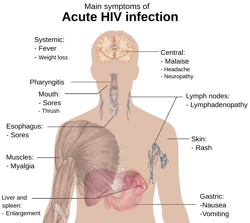New research shows that individuals living with human immunodeficiency virus (HIV) and acquired immune deficiency syndrome (AIDS) — an estimated 38 million worldwide, according to the World Health Organization (WHO) — have an increased risk of SARS-CoV-2 infection and fatal outcomes from COVID-19, according to a news release from Penn State College of Medicine.
In a new study, Penn State College of Medicine researchers found that people living with HIV had a 24% higher risk of SARS-CoV-2 infection and a 78% higher risk of death from COVID-19 than people without HIV. They assessed data from 22 previous studies that included nearly 21 million participants in North America, Africa, Europe, and Asia to determine to what extent people living with HIV/AIDS are susceptible to SARS-CoV-2 infection and death from COVID-19.
The majority of the participants (66%) were male and the median age was 56. The most common comorbidities among the HIV-positive population were hypertension, diabetes, chronic obstructive pulmonary disease, and chronic kidney disease. The majority of patients living with HIV/AIDS (96%) were on antiretroviral therapy (ART), which helps suppress the amount of HIV detected in the body.
“Previous studies were inconclusive on whether or not HIV is a risk factor for susceptibility to SARS-CoV-2 infection and poor outcomes in populations with COVID-19,” said Paddy Ssentongo, MD, MPH, Assistant Professor at the Penn State Center for Neural Engineering. “This is because a vast majority of people living with HIV/AIDS are on ART, some of which have been used experimentally to treat COVID-19.”
According to the researchers, certain pre-existing conditions are common among people living with HIV/AIDS, which may contribute to the severity of their COVID-19 cases. The beneficial effects of antiviral drugs, such astenofovir and protease-inhibitors, in reducing the risk of SARS-CoV-2 infection and death from COVID-19 in people with living with HIV/AIDS remain inconclusive.

